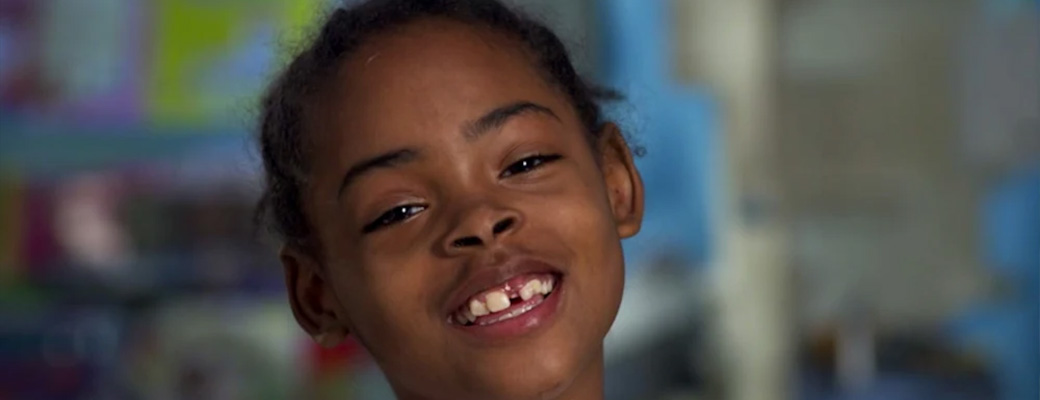New documentary from the Black & Missing Foundation highlights Relisha Rudd case
Dateline NBC
November 6, 2025
Nearly 40% of missing persons in the United States are people of color, and Black children make up about 33% of all missing child cases.
On today’s episode of Dateline: True Crime Weekly, Andrea Canning talks to Derrica and Natalie Wilson from the Black & Missing Foundation about the disappearance of Relisha Rudd, an 8-year-old who vanished in Washington, D.C. in 2014.
You can listen to the full episode now, for free.
Plus, read a transcript of their exchange below:
Andrea: Last week on what would have been her 20th birthday, the Black and Missing Foundation premiered a two-part documentary called “The Vanishing of Relisha Rudd: A Cold Case Reexamined.” Derrica and Natalie are here to tell us why it was so important to them to tell her story. Thank you both so much for being here.
Natalie: Thank you for having us.
Derrica: Thank you.
Andrea: So before we get to Relisha’s case, tell us more about your organization, the Black and Missing Foundation.
Natalie: We are the sole non-profit organization that focuses primarily on missing people of color. My background is media relations, to bring that visibility. Derrica’s is law enforcement, to get the resources needed from law enforcement so that we can get the community engaged. Many times we are the last resort for these families, and we have thousands of missing persons in our database, and they simply want answers as to what happened to their missing loved ones.
Andrea: So ladies, tell us about Relisha Rudd. She was going to a local school in the D.C. area, an elementary school, and then she just stopped showing up?
Natalie: So, yes. She lived in a shelter with her family, and she was attending a local school. By the time she was declared missing, 18 days had passed since she was last spotted at school or the shelter where she lived.
Andrea: What does her mom say? Why did it take her mom so long to say why she wasn’t attending school?
Derrica: Well, we actually haven’t heard from her mother. The school, they are the ones that actually reported Relisha missing. They elevated it to law enforcement.
Andrea: Let’s talk about this janitor, Khalil Tatum, who worked at the shelter. Relisha’s mother allowed him to care for her on certain occasions. How did this dynamic work, and why was he even in her life in any way beyond cleaning the shelter?
Derrica: There is a no fraternization policy that was in place. However, that was violated because Khalil Tatum gave gifts to Relisha and her mother. We don’t know why her mother felt so comfortable turning her over to him.
Andrea: The last sign of Relisha alive, there’s a chilling security camera footage you show in the documentary of her walking down a motel hallway with Khalil Tatum.
Natalie: Yes, and the question that — that we have is we see her going into the room, but we never see her coming out. Assistant Chief of Police Diane Groome said that that hotel was known for a lot of things–and sex trafficking was one of them.
Andrea: So authorities started looking for Tatum and made a horrifying discovery. They found his wife shot dead in another motel, and a few days later they found Tatum’s body in a city park. But no sign of Relisha. NBC News 4 covered the story.
NBC4: The man wanted for kidnapping an 8-year-old girl and killing his wife is found dead. Police say Tatum killed himself in the same park where they’ve been searching for Relisha Rudd for the last five days.
Derrica: Actually, we were out there at Kenilworth Park, searching for Relisha when Tatum’s body was found. Allegedly a–a gunshot wound, self-inflicted. And so what we are hopeful is that when he passed away, that everything didn’t go to the grave, right? We know that someone out there knows something. There are so many people that was in that shelter.
Andrea: The Department of Justice has reported that children experiencing poverty and housing insecurity are more vulnerable to kidnapping or trafficking. You argue in your documentary that the social safety net in D.C. failed to protect Relisha.
Derrica: I mean, the fact that it took 18 days to even report her missing. But we would not have known about this case if that vigilant educator didn’t bring it to everyone’s attention that something just wasn’t right. I think everyone can learn from that person. You know, “See something, say something.”
Andrea: Where can our listeners watch your documentary?
Natalie: So they can go to our YouTube channel. It’s the Black and Missing Foundation YouTube.
Andrea: Okay, great. Derrica and Natalie, thank you for sharing Relisha’s story, but also for all the amazing work that both of you do and for helping so many families in many different ways.
Natalie: Thank you so much.
Derrica: Thank you so much.
Photo credit: Homeless Children’s Playtime Project

